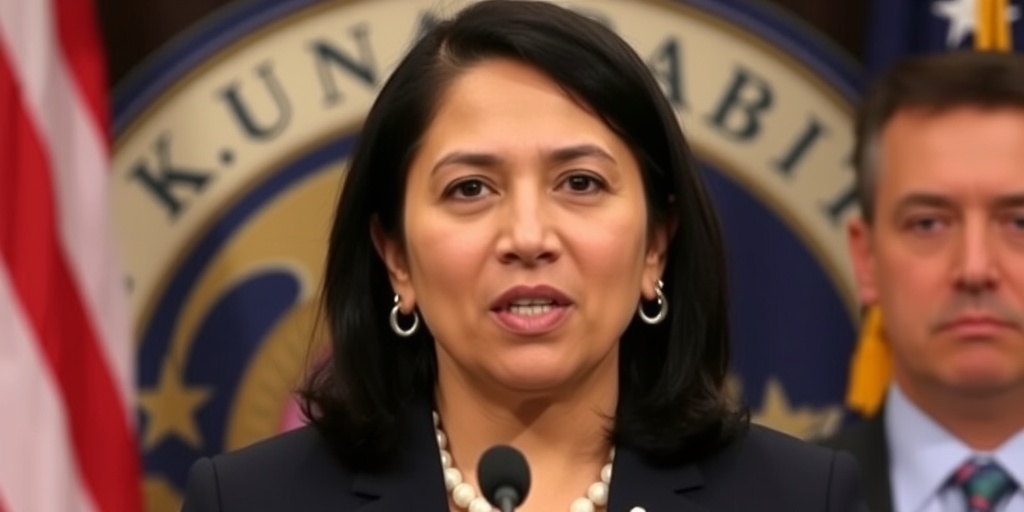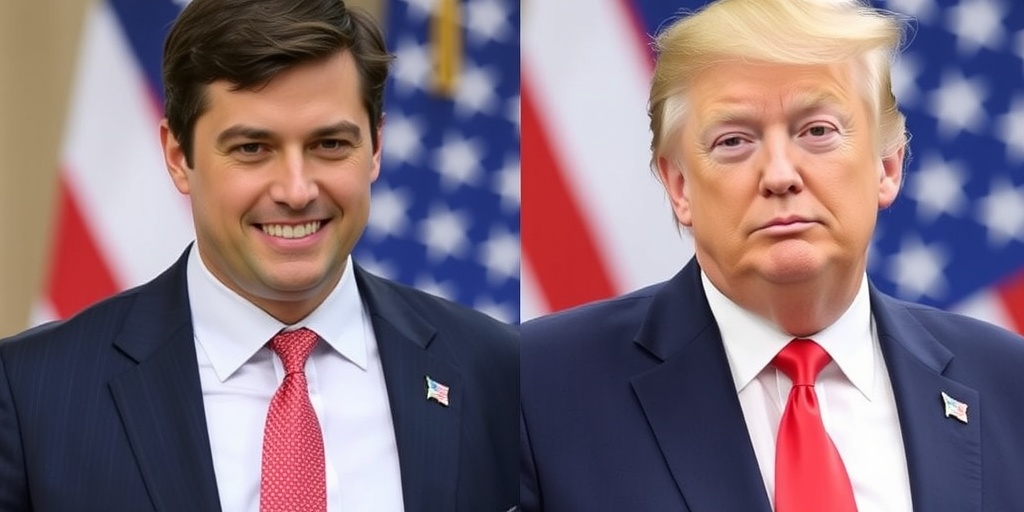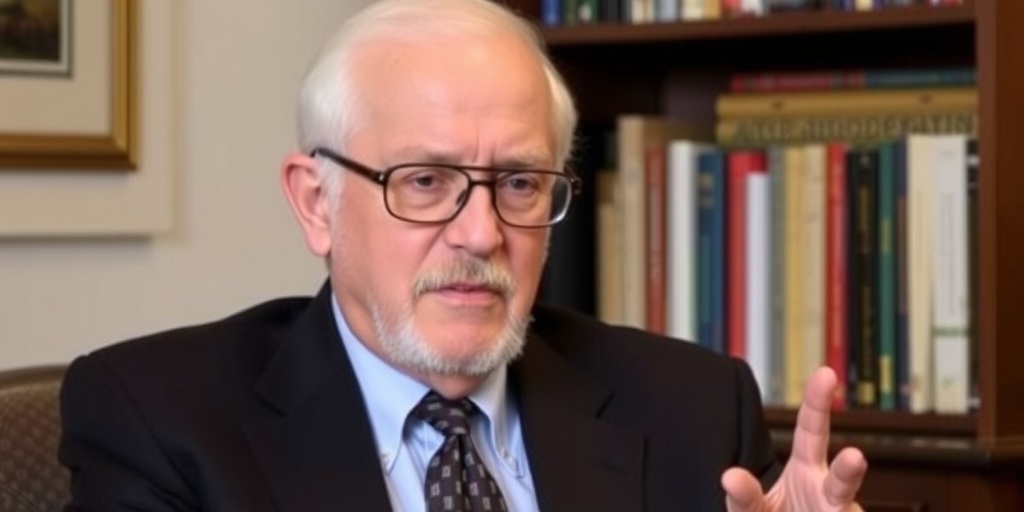Now Reading: Gabbard Launches Task Force on Intelligence Agencies’ Politicization
-
01
Gabbard Launches Task Force on Intelligence Agencies’ Politicization
Gabbard Launches Task Force on Intelligence Agencies’ Politicization

Tulsi Gabbard Announces New Task Force for Intelligence Reform
In a significant move aimed at reforming the United States intelligence community, Tulsi Gabbard, the Director of National Intelligence, unveiled a new initiative on Tuesday designed to declassify information crucial to the public interest and enhance operational efficiency within intelligence agencies. This new effort, known as the Director’s Initiative Group, is positioned as a means to counteract the politicization that has plagued these agencies in recent years and to investigate instances where intelligence has allegedly been weaponized against individuals and groups.
In her announcement, Gabbard emphasized the necessity of restoring trust in the intelligence community, which has faced scrutiny and criticism amid growing concerns over transparency and accountability. "We are committed to executing the president’s vision and focusing the intelligence community on its core mission: ensuring our security by providing timely, apolitical, objective, and relevant intelligence to inform decision-making," said Gabbard. "The safety, security, and freedom of the American people depend on our ability to provide sound intelligence free from political influence."
Critics have pointed out the irony in Gabbard’s initiative, noting that some of the actions taken by her office, such as the stripping of security clearances from high-profile Democrats and critics of former President Donald Trump, have also been seen as politically motivated. These decisions have raised questions about the objectivity and impartiality of the intelligence agencies and have spurred bipartisan concerns regarding their operations.
The Director’s Initiative Group will undertake a comprehensive review of various topics for potential declassification. Among the issues being addressed are the origins of the coronavirus pandemic, investigations related to the health incidents connected to the so-called "Havana syndrome," and inquiries into Russia’s interference in the 2016 U.S. presidential election. Additionally, the group may provide recommendations regarding the release of documentation concerning the assassinations of prominent civil rights leader Martin Luther King Jr. and former presidential candidate Robert F. Kennedy, events that have remained shrouded in mystery and speculation. Former President Trump had previously ordered the release of documents related to these cases.
Furthering the scope of its review, Gabbard indicated that the task force will evaluate whether details surrounding the Biden administration’s alleged surveillance and censorship of American citizens should be disclosed. This particular focus could surface contentious debates about the balance between national security measures and civil liberties. The Trump administration had previously criticized the Biden administration’s approach to countering domestic terrorism and misinformation, suggesting these efforts may infringe upon the rights of Trump supporters.
In addition to its declassification assignments, the initiative group will focus on assessing expenditures within the intelligence sector. Senior officials have suggested that certain bureaucratic structures within intelligence agencies are impeding the agility and timeliness of intelligence reports, including the President’s Daily Brief, which is essential for informed decision-making at the highest levels of government. By identifying and recommending solutions to eliminate wasteful spending and streamline operations, Gabbard hopes to foster a more efficient intelligence framework.
Despite the laudable goals of increasing transparency and accountability, the effectiveness of the Director’s Initiative Group will largely depend on the members selected to participate in the review process. As of the announcement, Gabbard did not disclose the identities of the group’s members, raising questions about the composition and potential biases that may influence the group’s findings.
Overall, Gabbard’s initiative represents a pivotal step in re-evaluating the role of intelligence agencies in American governance. The intersection of public trust, national security, and political accountability remains a central theme in this ongoing discourse. As discussions continue, the effectiveness of Gabbard’s efforts to depoliticize intelligence operations while ensuring the protection of civil liberties will be closely monitored by both political analysts and the wider public.
The establishment of the Director’s Initiative Group not only highlights the Biden administration’s commitment to transparency but also seeks to clarify the mission and purpose of intelligence agencies in an era of pervasive political scrutiny. Moving forward, the balancing act between security and transparency will be critical, as the American public and lawmakers alike demand not just answers but also reforms that ensure the integrity and impartiality of the nation’s intelligence apparatus.
As the task force embarks on its mission, the results of its investigations and recommendations could potentially reshape the landscape of intelligence in America, fostering a renewed sense of trust between the intelligence community and the citizens it serves.
Stay Informed With the Latest & Most Important News
Previous Post
Next Post
-
 01New technology breakthrough has everyone talking right now
01New technology breakthrough has everyone talking right now -
 02Unbelievable life hack everyone needs to try today
02Unbelievable life hack everyone needs to try today -
 03Fascinating discovery found buried deep beneath the ocean
03Fascinating discovery found buried deep beneath the ocean -
 04Man invents genius device that solves everyday problems
04Man invents genius device that solves everyday problems -
 05Shocking discovery that changes what we know forever
05Shocking discovery that changes what we know forever -
 06Internet goes wild over celebrity’s unexpected fashion choice
06Internet goes wild over celebrity’s unexpected fashion choice -
 07Rare animal sighting stuns scientists and wildlife lovers
07Rare animal sighting stuns scientists and wildlife lovers





















